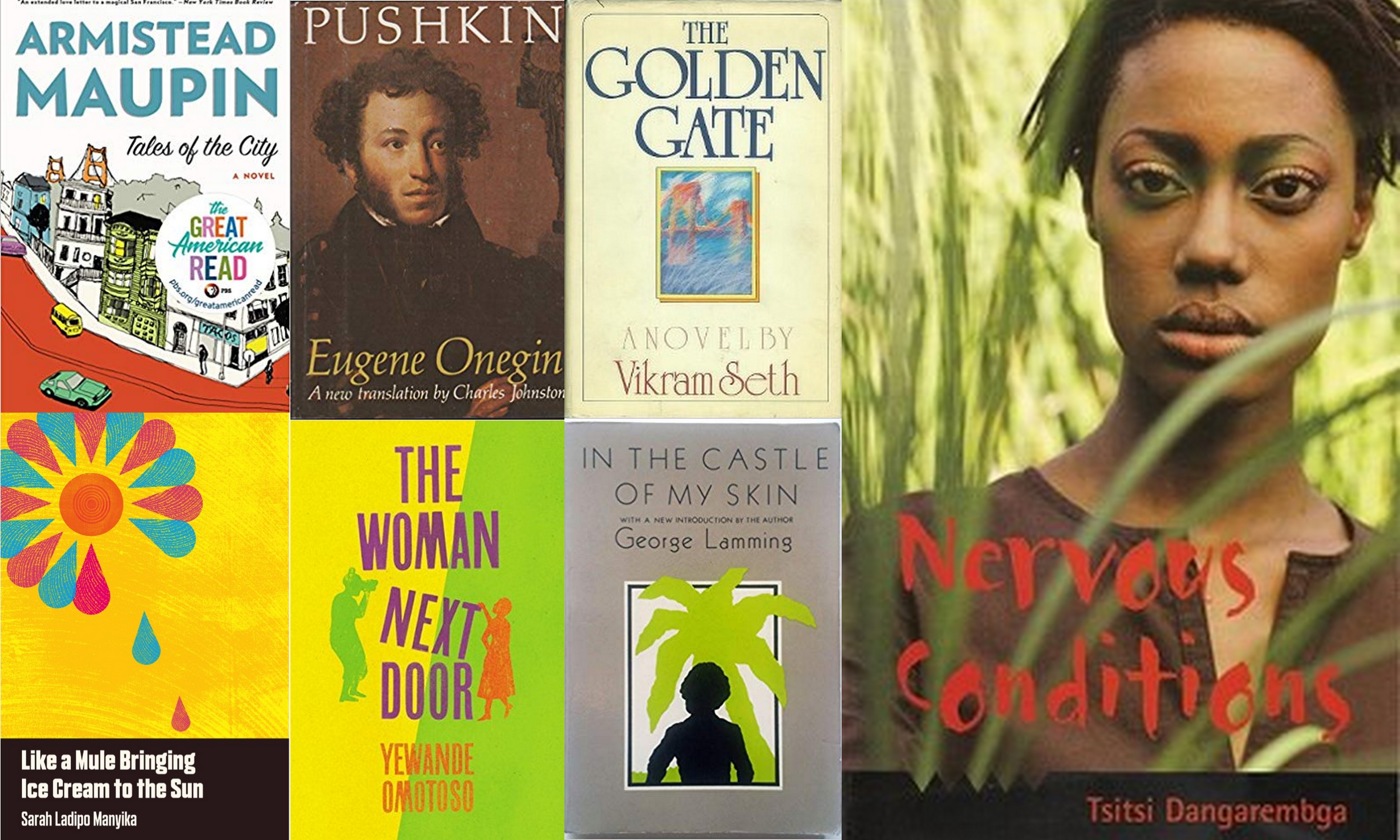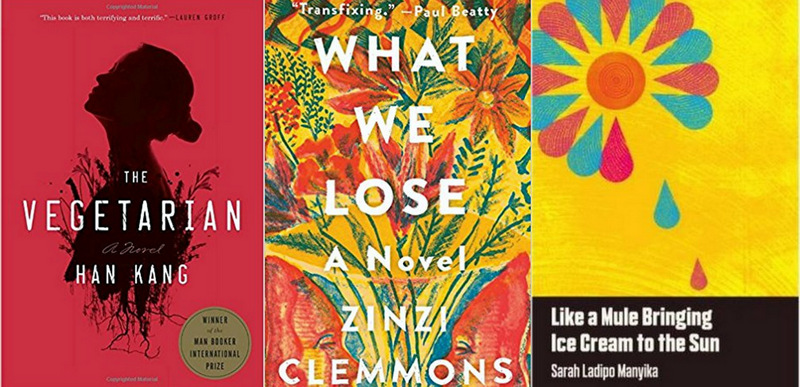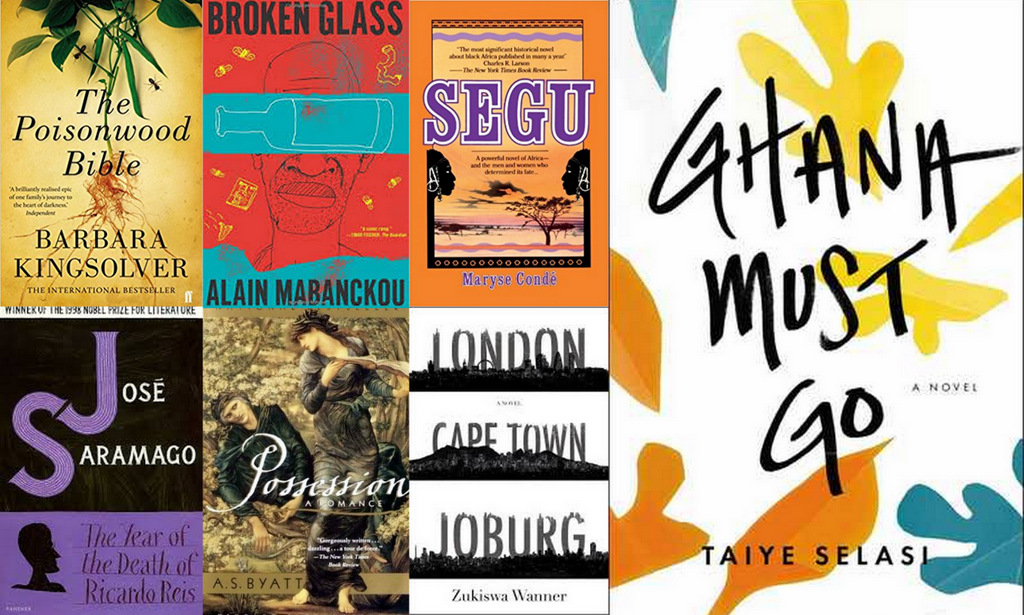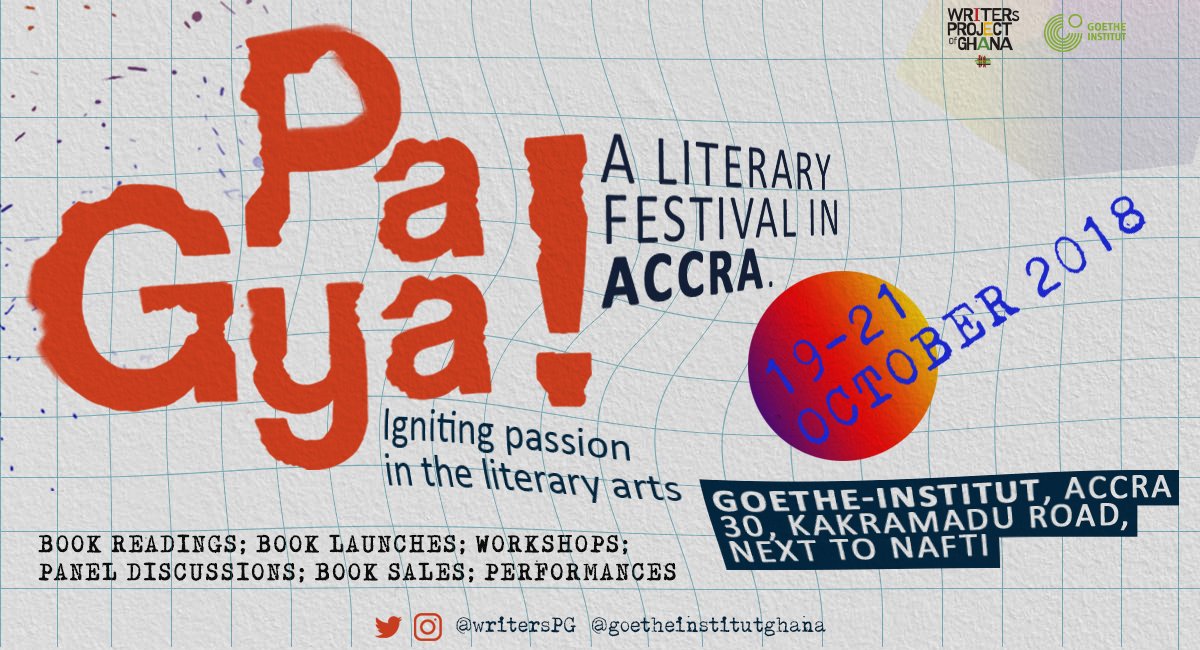I’m not quite feeling my current format of titling these grouped review posts. The previous one is “Short Reviews of a Kang, a Clemmons and a Manyika“. On one hand, a generic “Review of Three Books” is not helpful...
I’m not quite feeling my current format of titling these grouped review posts. The previous one is “Short Reviews of a Kang, a Clemmons and a Manyika“. On one hand, a generic “Review of Three Books” is not helpful – I generally like to indicate the writer and title of the book under review. On the other hand listing all three book titles would result in a clumsy, somewhat inelegant post title. (I’m fussy about titles; I have a whole spiel about them). Using book titles, today’s post would be “Reviews: The End of Days; Far From My Father; Maid in SA.” Doesn’t look(read) so bad, huh? I don’t know. Tell me your preference in the comments. Either way, a post title with names of the 3 writers and 3 book titles would definitely be too long and unwieldy.
To the books.

The End of Days by Jenny Erpenbeck
German women writers: now here is a category of writers whom I don’t read, often or otherwise. In general, I don’t read contemporary German fiction. I say this quite confidently because I tend to plan out what to read from the translation fiction space. Even at 2% (the proportion of books that are translated into the English), there is still a too-many-delights-very-little-time vibe so I regulate aggressively. I confess bad, unjustified over-reaction where I tried my mind on Gunter Grass’ The Tin Drum and it didn’t go well so I quit the entire contemporary German space for her Eastern European neighbours! So imagine my surprise when it dawns on me, just as I’m sitting down to write this review, that within a span of 2 months, I’ve read TWO books by German women writers. Jenny Erpenbeck and the Russian-German Alina Bronsky. I’m critical about my lack of pace when it comes to translated fiction, but because I always want to read more of it than I actually do, I keep lists upon lists of books that cross my radar. Lists that are heavily informed by other bloggers. So The End of Days it was, since it’d been among the mentions of good translated fiction in previous years.
The novel, which won The Independent Foreign Fiction Prize in 2015, illustrates in five parts, the “but what if…” question in a woman’s life. It opens in 1902 with a baby girl’s cradle death, a death which tears her family apart and sends her father fleeing to the United States. But what if she had lived? We then follow four different paths, four different possibilities of living, from 1902 to the fall of the Berlin Wall. The central motif in this novel is probably the secrets we keep in order to seemingly protect our loved ones. But other themes such as the treatment of Jews in Eastern Europe and state repression prevail in this novel which functions as a twentieth century historic panorama. It’s an impressive, rich and powerful novel which utilises different point-of-views in its narration. I like Erpenbeck’s sparse prose. The Ends of Days is translated from the German by Susan Bernofsky.

Far from My Father by Véronique Tadjo
Two of Tadjo’s books – As the Crow Flies and Queen Pokou – are under review here on this blog. She’s a writer I read. Far from My Father draws autobiographical elements from the author’s life. The protagonist, Nina, is biracial – her father is Ivorien and her mother is French. Nina, who has been living in a self-imposed exile, returns to Côte D’Ivoire to bury her dad. The country, and city Abidjan, are recovering from a decade-long war, where citizens are just starting to reconnect and get back to a semblance of peace-time living. The issues surrounding Nina’s short return are familiar. The guilt of missing her father’s last days; strained family relationships; the outsider status; finding that you are stuck in a past country. As she sorts out her father’s papers and plans the funeral; as family members gather, she interrogates her parents’ marriage and her father’s life. In short, things come out of the woodwork, folks come through the door. Nina finds that perhaps she didn’t really know her father, at least not as well as she thought. Alienation, belonging, patriarchy, polygamy – these are issues Nina deals with as she ponders whether to stay in Abidjan or go back to France and resume her life with her partner. She will forge new ties to homeland, make peace with the past, find a way to fill in the answers and bury her dad. It’s a brave book that Tadjo has written. This novel doesn’t have any experimental elements unlike Queen Pokou and As the Crow Flies, which I greatly enjoy. Nonetheless, I liked Far from My Father. The book is translated from the French by Amy Baram Reid, who also wrote the book’s afterword. I remain opposed to introduction and afterwords, especially for a book’s first publication. Far from My Father is a contemporary novella. I can’t understand the need to explain Tadjo and her work to readers. We don’t need African whisperers.

Maid in SA: 30 Ways to Leave Your Madam by Zukiswa Wanner
Maid in SA is hilarious, fast read and light in the sense of a heavy, political subject made easy. The book analyses the relationships between madams and their domestic workers along race and class lines. The first part is a guide written for the workers, on the different types of madams – “The Rich Madams”, “The Indian Madams”, “ The African Madams” – how it’s like to be in their employ and why the worker will leave. Wanner is thorough, there are sub-categories by class. I think Maid in SA is considered a satire and I don’t know why. The scenarios that Wanner describes are hardly exaggerated. And while generalized, these guides are definitely not caricatures. Wanner’s observations are nuanced, keen and pithy. Even as someone living in a West African city, the guide on the “The African Madams” was spot on. Perhaps, Wanner might be considered a bit kind because the level of exploitation of domestic workers here in West Africa is epic. Part II is a guide on “The Helpers”, written for the Madams. Here, guides are grouped into “rural, city, Mosotho, Zimbabwean, and Malawian helpers”. It helps that Wanner herself is very familiar with other African countries because none of her helper guides come off as stereotyping. It’s obvious that the author made ample use of a wide variety of material and because that material is condensed into just 92 pages, the book is rich in substance while making us hoot all the way to the end. Fab!













